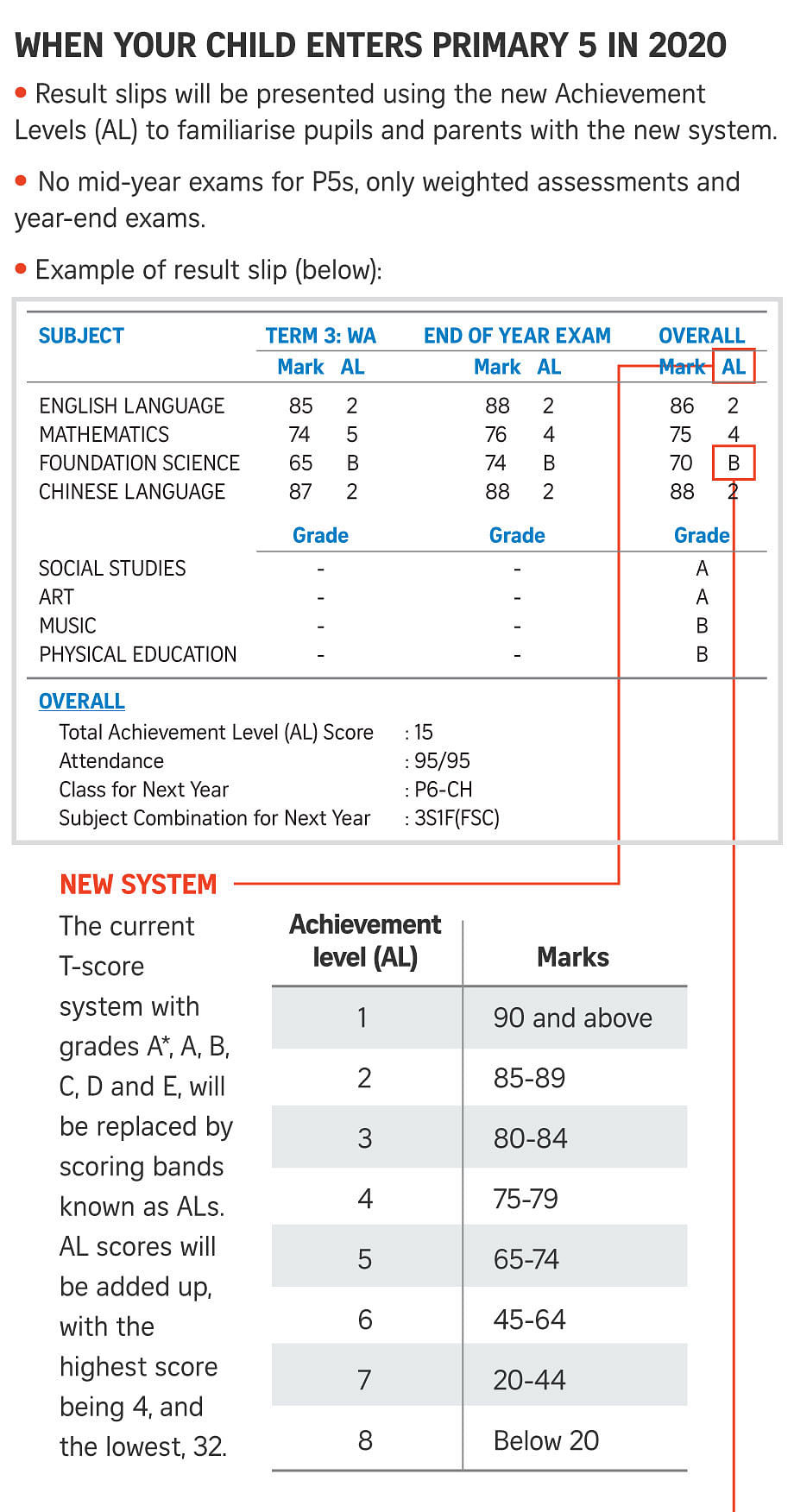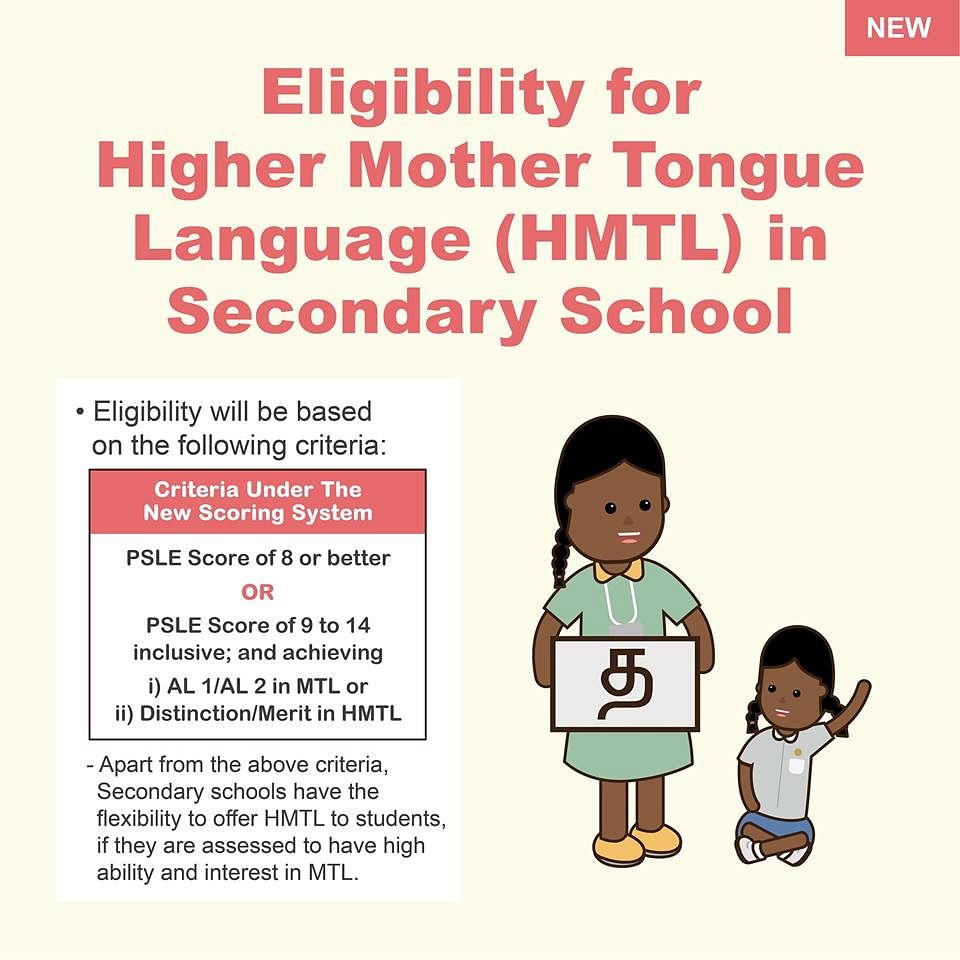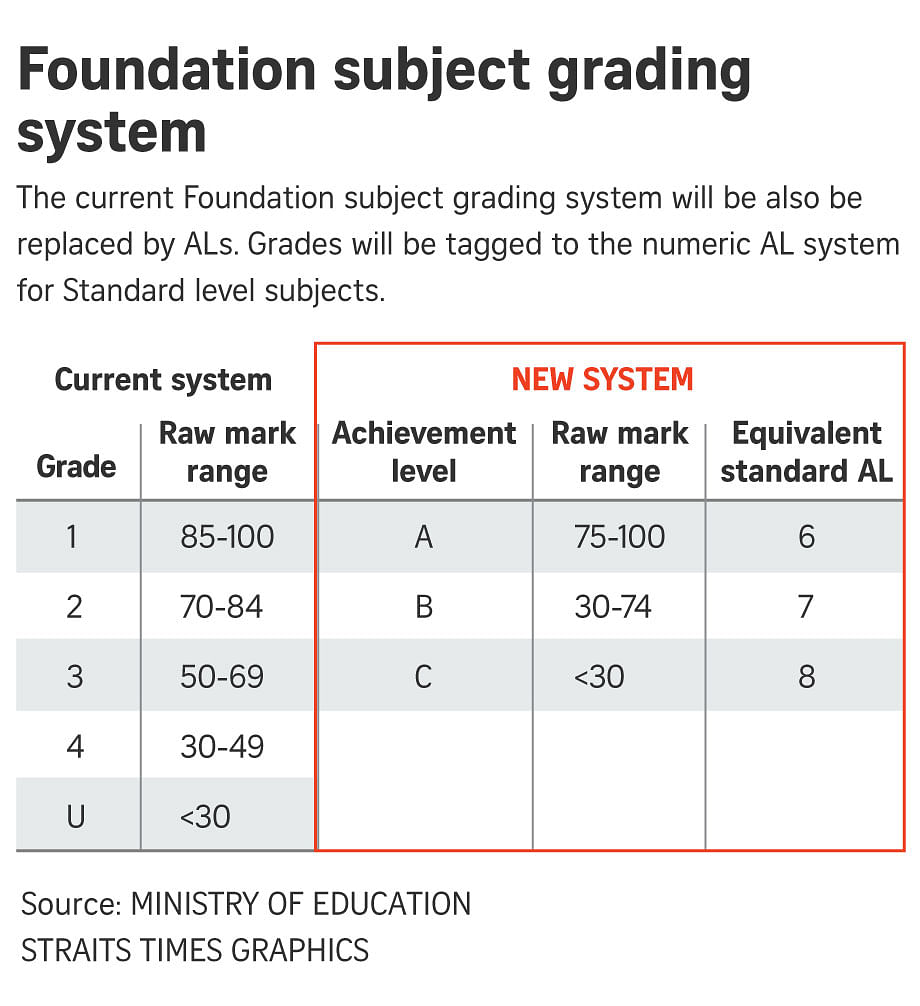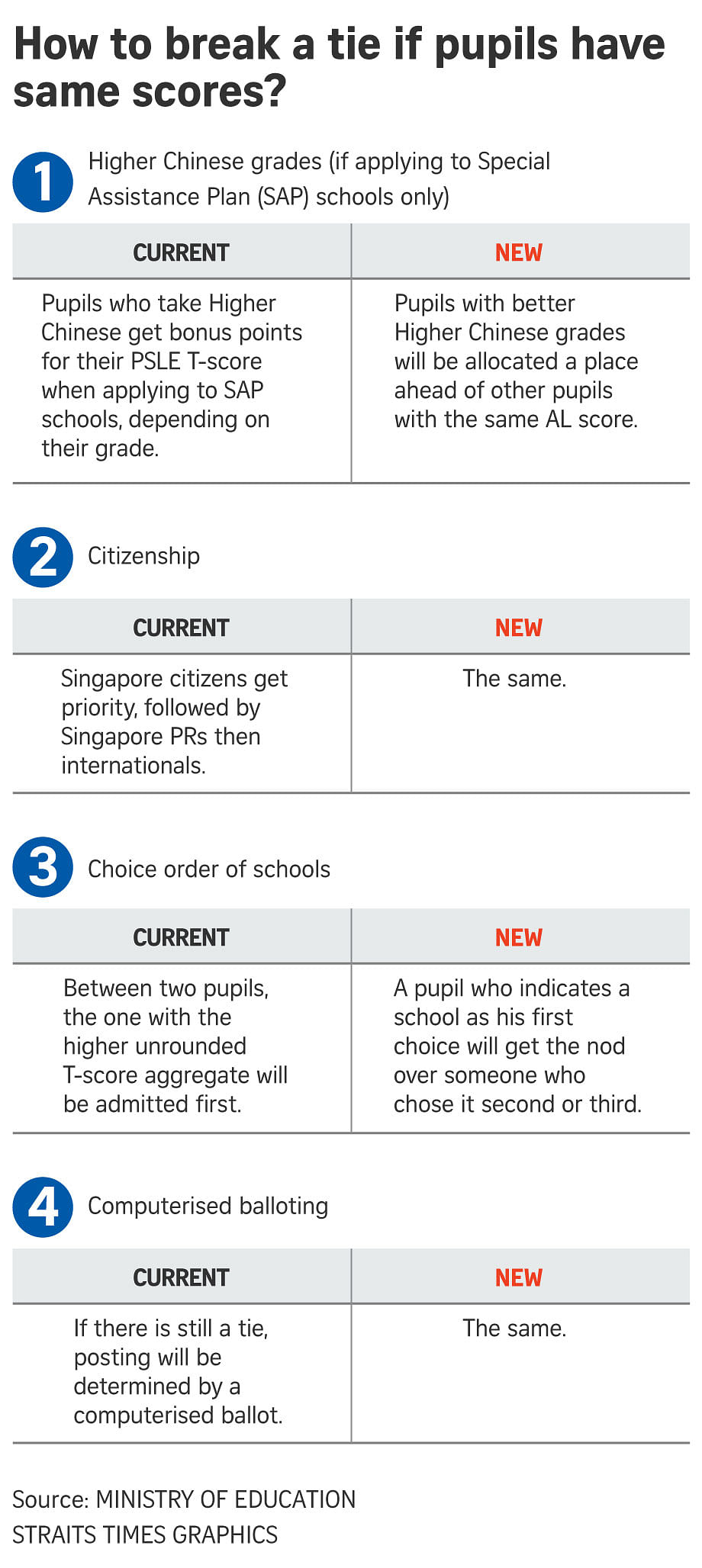PSLE scoring system changes: 8 burning questions answered
Sign up now: Get tips on how to help your child succeed

Eunos Primary School pupils receiving their Primary School Leaving Examination results on Nov 25, 2015.
PHOTO: ST FILE
SINGAPORE - The Ministry of Education announced on Thursday (July 25) more details on the upcoming PSLE scoring changes that take effect in 2021, and will affect this year's Primary 4 pupils. This adds to what was previously announced in 2016.
Here are the answers to some frequently asked questions.
1. What exactly are the new changes announced on Thursday?
There are four main components to the new announcement.
First, starting from next year and in all subsequent years, pupils entering Primary 5 will be graded on Achievement Levels 1 to 8 instead of the current grades A* to E.
Doing this from Primary 5 will allow pupils and parents to become more familiar with the new scoring system for the PSLE, said MOE.
Second, MOE said it will release the cut-off entry scores for each school using ALs, instead of the current T-score, in the middle of 2021.
Usually the entry scores are derived from the previous year's posting exercise and given to students between October and November.
Third, those who take Foundation-level subjects will know how their scores are graded in the new system. They will receive grades of AL A to C, which are tagged to AL6 to AL8 scores for Standard-level subjects.

Lastly, MOE has announced the eligibility criteria for Higher Mother Tongue. Pupils will need an overall PSLE score of 8 or better to take it up in secondary school.
They can also take up Higher Mother Tongue if they have an overall PSLE score of 9 to 14 and attain AL1 or AL2 in their mother tongue or distinction or merit in their higher mother tongue at the PSLE.
For pupils who do not meet the above criteria, secondary schools will have the flexibility to offer Higher Mother Tongue to students assessed to have high ability and interest in mother tongue languages. This is similar to the existing practice.

2. What was announced in 2016?
The biggest announcement then was that each Standard-level PSLE subject will be scored using eight bands known as Achievement Levels (AL), with AL1 returning the best score of 1 and AL8 the worst score of 8.
The total PSLE score will be a sum of the scores for the four subjects, and the range of possible scores will be 4 to 32, with 4 being the best and 32 the lowest.
The new ALs reflect each child's level of achievement, rather than how he has performed relative to his peers.

3. The new AL system groups pupils with 75 marks and above into 4 AL bands (AL1 to AL4), instead of the current A* and A grades. Doesn't this contradict MOE's aim of reducing fine differentiation?
There is a need to balance having too many ALs with too few, said MOE. If there are too few ALs, there will be more pupils with the same PSLE score, which will lead to more balloting for Secondary 1 school postings.
The raw mark ranges for the eight ALs offer a good balance, added MOE.
The upper range is narrower to better differentiate pupils' level of understanding, as a large majority are able to show an understanding of the curriculum and do well in it.
At the middle to lower ALs, wider ranges are sufficient to indicate a pupil's progress, and further differentiation is less educationally meaningful, said MOE.
4. If my child takes Foundation subjects, will he still be able to qualify for the Express stream?
If your child takes at least one Standard subject out of the four, he will still have a chance to qualify for the Express stream, as long as he meets the score criteria.
Additionally, when he enters secondary school, he will be able to take different subjects at different levels, as long as he can manage his academic load.
Pupils should decide to take a subject at Standard or Foundation level depending on their aptitude for and ability in that subject, rather than whether it will help get them into their desired stream, said MOE.
5. Why are the Foundation subject ALs pegged so low when using the Standard subject ALs?
The Foundation subject grades A to C are pegged to AL6 to AL8.
This pegging reflects the fact that the curriculum of a Foundation-level subject is a subset of the Standard-level subject.
The assessment load at Foundation level is less demanding, said MOE.
Foundation subjects cater to the learning needs of students so that they can pursue learning at a pace and level that is more suited to them.

6. If my child takes Higher Chinese, will he have an advantage for the Secondary 1 school posting?
Yes, but only if your child is applying to a Special Assistance Plan (SAP) school.
If two pupils have the same PSLE score, the one with better Higher Chinese grades will be allocated a place ahead of the other pupil.
This posting advantage applies before the other tie-breakers for Secondary 1 posting.
There will be no bonus points under the AL system like there used to be with the T-score system.

7. Why is it important that I rank the schools I want by order of preference?
Choice order of schools will be important in the event of a tie. The tie-breakers, barring Higher Chinese grades, are, in order of importance: citizenship, choice order of schools, and computerised balloting.
Previously, choice order of schools did not matter as an unrounded T-score aggregate - down to decimal places - was used to determine which child would get in ahead of the other.
This tie-breaker recognises the different considerations that pupils and parents have in making school choices, such as a school's ethos, culture, programmes and co-curricular activities offered.
8. If I'm still confused about all these changes, what should I do?
In the next few months, schools will be engaging parents and pupils who will undergo the new PSLE scoring system to guide them in making informed decisions, particularly in their subject choices at the end of Primary 4.
More details on the PSLE scoring changes and Secondary 1 posting system are also available on MOE's' website.
Do you have questions on the new PSLE scoring system? E-mail senior education correspondent Sandra Davie at sandra@sph.com.sg
Get stories like this and more on our Telegram channel, click here to sign-up.


